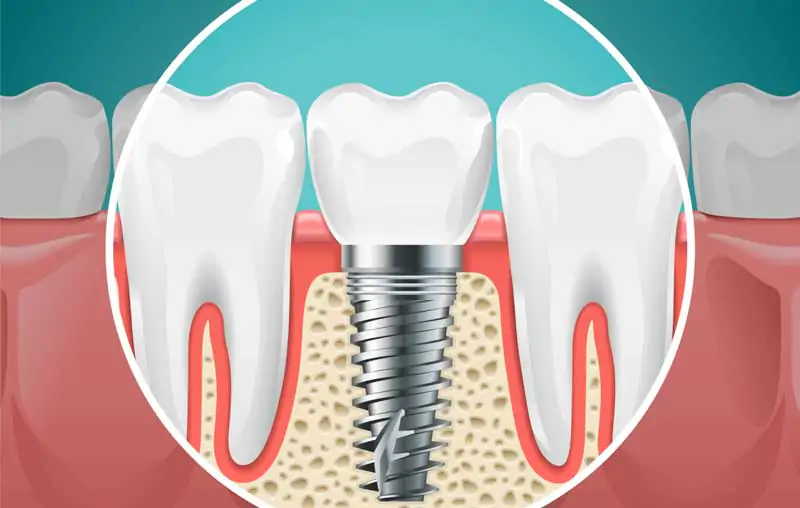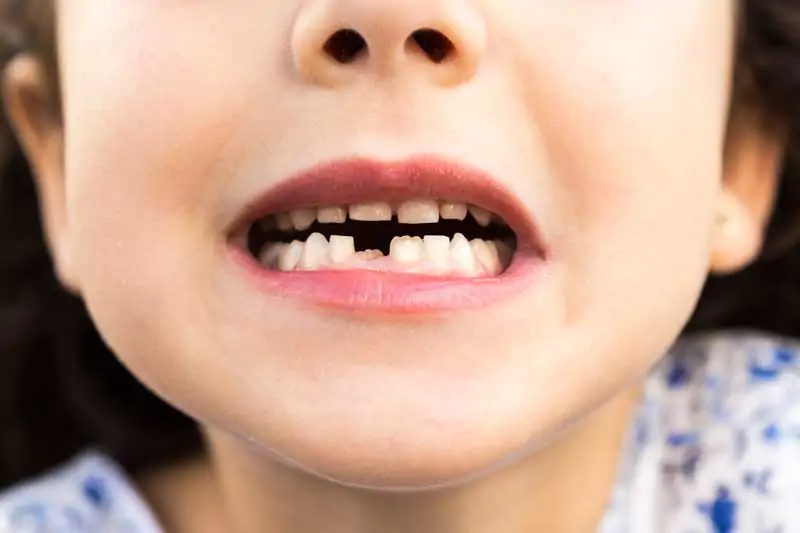Dental implants offer a revolutionary solution. They replace missing teeth effectively. Proper care is key to their success.
Excellent dental care practices are absolutely vital. This keeps your implants functioning optimally for years.
Choosing a reputable dental clinic is important. They provide accurate guidance for implant aftercare.
Facilities like Bali Sudirman Medical Centre offer a comprehensive range of services. This includes specialized dental implant maintenance.
The health of your dental implants contributes significantly. It is a core part of your overall oral health.
Caring for implants is like natural teeth. However, some key differences do exist.
Dental implants have transformed modern dentistry. They provide a durable and aesthetic solution for tooth loss. However, the success of dental implants extends beyond the surgical procedure. Meticulous post-placement care is crucial. Proper maintenance ensures implant longevity. It also prevents potential complications, safeguarding your investment and health.
Why is Dental Implant Care Crucial?
Dental implants, though artificial, integrate with living tissue. The surrounding gums and bone require diligent care. They remain susceptible to disease if oral hygiene is neglected. Key reasons for dedicated implant care include:
- Preventing Peri-implantitis: This condition is an inflammatory response. It affects soft and hard tissues around an implant. It’s similar to gum disease in natural teeth. If untreated, peri-implantitis can lead to bone loss. Ultimately, it may cause implant failure. Statistics suggest peri-implantitis might affect up to 20% of implant patients within 5 to 10 years post-placement.
- Ensuring Implant Longevity: With diligent care, dental implants can last a lifetime. Studies consistently show high success rates. Well-maintained implants often achieve 95-98% success over 10 years or more.
- Maintaining Overall Oral Health: Good implant hygiene supports healthy gums. It also protects remaining natural teeth. This contributes to a holistically healthy mouth.
- Optimizing Functionality: Healthy implants function like natural teeth. They allow you to eat, speak, and smile confidently.
- Aesthetic Stability: Proper care maintains the appearance of the implant. It also supports the surrounding gum tissues. This ensures a natural-looking smile.
Daily Home Care for Dental Implants
Consistent daily home care forms the cornerstone of implant health. It keeps your implants and surrounding tissues clean. Follow these essential steps:
1. Proper Brushing Techniques
- Frequency: Brush at least twice daily. Ideally, after breakfast and before bedtime. Consider brushing after other meals too.
- Toothbrush Type: Use a soft-bristled toothbrush. Both manual and electric toothbrushes are effective. Soft bristles prevent gum irritation. They also avoid scratching the implant crown.
- Technique: Brush gently yet thoroughly. Pay special attention to the area where the implant meets the gumline (the margin). Use small, circular motions. Ensure all tooth surfaces are cleaned.
- Toothpaste Choice: Opt for a low-abrasive toothpaste. Avoid whitening toothpastes with harsh abrasives. These can potentially damage the implant’s surface.
2. Effective Interdental Cleaning (Flossing)
- Importance of Flossing: Flossing cleans areas your toothbrush cannot reach. This is especially true around implants. It removes plaque and food debris from between teeth and under implant-supported bridges.
- Floss Type: Consider using unwaxed tape floss. Implant-specific floss or floss threaders can be beneficial. These tools help navigate around implant abutments.
- Alternative Cleaning Aids: Water flossers (oral irrigators) are excellent tools. They effectively clean around implants. Interdental brushes (proxy brushes) are also very useful. They clean the spaces between implants and natural teeth. Choose the correct size for your spaces.
3. Using Mouthwash
- Mouthwash Selection: An antimicrobial, alcohol-free mouthwash can be beneficial. Your dentist might recommend a specific therapeutic rinse. This may be particularly true during the initial healing phase or if signs of inflammation appear.
- Benefits: Mouthwash helps reduce oral bacteria. It can also freshen breath. However, it should complement, not replace, brushing and flossing.
Professional Care at Your Dental Clinic
Regular visits to your dental clinic are vital. These appointments supplement your home care efforts. A clinic like Bali Sudirman Medical Centre offer a comprehensive approach to implant maintenance.
- Visit Frequency: Typically, visits are scheduled every 3 to 6 months. Your dentist will recommend a personalized schedule. This depends on your specific oral health needs and implant type.
- Comprehensive Examinations: During these visits, your dentist will:
- Check implant stability and integration.
- Assess the health of surrounding gum tissues.
- Probe periodontal pockets around the implant.
- Evaluate your bite and implant function.
- Screen for any signs of peri-implant disease.
- Professional Cleaning (Prophylaxis): Specialized instruments are used. These are designed for cleaning implants without scratching their surfaces. This removes hardened plaque (calculus) and biofilm.
- Periodic Radiographs (X-rays): X-rays are taken periodically. They monitor the bone levels around your implants. This allows for early detection of any bone loss or other underlying issues.
Crucial Reminder: Never skip your scheduled professional maintenance appointments. Early detection of potential problems is key. It allows for timely intervention and significantly improves long-term implant success.

Lifestyle Choices Supporting Implant Health
Beyond direct oral hygiene, certain lifestyle factors significantly impact implant health. Consider these for optimal oral health:
- Avoid Smoking and Tobacco Products: Smoking is a major risk factor for implant complications. It impairs healing and increases the risk of peri-implantitis. Statistics show smokers have a significantly higher rate of implant failure, sometimes 2-3 times greater than non-smokers. Quitting smoking is highly recommended.
- Maintain a Balanced Diet: A nutritious diet supports overall health, including oral tissues. Limit sugary and sticky foods that promote plaque buildup. Be cautious with extremely hard foods. These could potentially damage the implant crown or structure.
- Avoid Harmful Habits: Do not use your teeth (including implants) as tools. Refrain from opening packages or bottles with your teeth. Avoid chewing on ice, pens, or other hard objects. These habits can put undue stress on implants.
- Manage Systemic Health Conditions: Conditions like diabetes can affect implant success. Work with your physician to manage any systemic diseases. Inform your dentist about your overall health status.
When to Contact Your Dentist Immediately?
Promptly contact your dental clinic, such as Bali Sudirman Medical Centre, if you notice any of the following:
- Persistent pain, swelling, or bleeding around an implant.
- Any feeling of looseness or movement in the implant or its crown.
- Pus or discharge from the gum tissue around the implant.
- Difficulty or discomfort when chewing or biting.
- A bad taste or persistent bad breath that doesn’t resolve with cleaning.
- Visible changes in the gum tissue around the implant (e.g., recession, redness).
These symptoms could indicate an developing issue. Early intervention is critical to address problems and preserve your implant. Remember, vigilant dental care is your best defense.
The Enduring Benefits of Proper Dental Implant Care
Investing time and effort in caring for your dental implants yields substantial rewards. These benefits enhance not only your smile but also your overall quality of life.
- Maximized Implant Lifespan: With diligent care, implants can last for many decades, often a lifetime.
- Optimal Chewing Function: Healthy implants allow you to eat a wide variety of foods. You can enjoy meals without discomfort or limitations.
- Preserved Aesthetic Appearance: Well-maintained implants and healthy surrounding gums ensure a natural, confident smile.
- Prevention of Costly Complications: Proactive care helps avoid complex and expensive treatments for implant problems later.
- Enhanced Overall Well-being: A healthy, functional smile boosts self-esteem. It positively impacts social interactions and general well-being.
Your commitment to excellent dental care will ensure your implants remain a valuable asset. Bali Sudirman Medical Centre is dedicated to supporting you. We offer a comprehensive suite of services to maintain your implant health and overall oral health.
Frequently Asked Questions (FAQ)
Do I need a special toothbrush for my dental implants?
Not necessarily. A soft-bristled toothbrush is usually sufficient. However, an electric toothbrush with a small head or specialized brushes like end-tuft brushes or interdental brushes can be very effective for cleaning hard-to-reach areas around implants.
Is there a specific toothpaste for dental implants?
A low-abrasive, fluoride-containing toothpaste is generally recommended. Avoid highly abrasive whitening toothpastes or those with harsh chemicals. Your dentist at your chosen dental clinic can suggest suitable options.
How often should I visit the dentist after getting implants?
Initially, follow-up visits may be more frequent. Once healed, most implant patients require professional cleanings and check-ups every 3 to 6 months. Your dentist will determine the optimal recall interval based on your individual needs and oral health status.
Can I eat all types of food with dental implants?
Once fully integrated and restored, dental implants function much like natural teeth. You should be able to eat most foods. However, it’s wise to avoid extremely hard items (like ice or hard nuts) or using implants to open things, to prevent damage.
What should I do if my dental implant feels loose?
Contact your dentist immediately. Do not try to wiggle it or fix it yourself. A loose implant or crown can indicate a problem that needs professional attention. Bali Sudirman Medical Centre can provide expert assessment.
Is smoking really that detrimental to dental implants?
Yes, absolutely. Smoking significantly increases the risk of implant failure and complications like peri-implantitis. It constricts blood vessels, impairs healing, and compromises the immune response in oral tissues.
How can Bali Sudirman Medical Centre assist with my implant care?
Bali Sudirman Medical Centre offer a comprehensive range of dental care services. Our experienced dental team provides expert implant placement, routine maintenance, professional cleanings tailored for implants, and management of any implant-related concerns. We are committed to ensuring the long-term success of your implants and your overall oral health.
Ready to ensure the longevity of your dental implants and maintain optimal oral health?
Our expert team at Bali Sudirman Medical Centre is here to help. We provide personalized care and guidance for your dental implants.
Learn More About Our Dental Services
Always consult with a qualified dental professional for any health concerns or before making any decisions related to your treatment.









